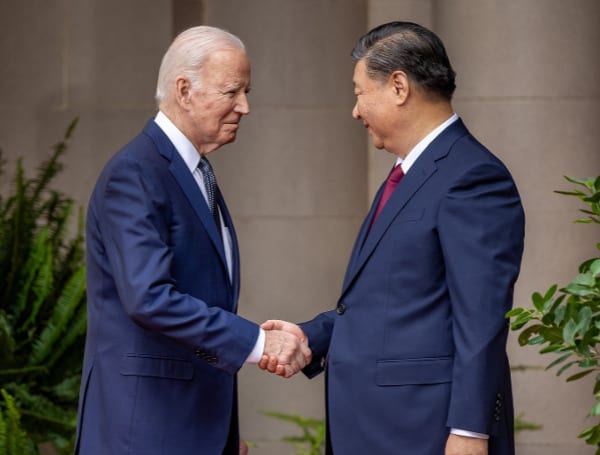The U.S. Department of Commerce’s Bureau of Industry and Security (BIS) is under fire for its failure to prevent advanced U.S.-made chip technology from reaching Communist China, despite public assertions of a tough stance on the issue by the Biden-Harris Administration.
Recent reports from the Wall Street Journal and the New York Times have revealed significant lapses in the export controls intended to keep cutting-edge semiconductor technology out of the hands of the Chinese Communist Party (CCP) and its armed wing, the People’s Liberation Army (PLA).
Read: Florida Sen. Marco Rubio, Colleagues Condemn Maduro Regime’s Fraudulent Election Move In Venezuela
These reports indicate that thousands of advanced chips have been accessed by China through third-party vendors, circumventing U.S. export restrictions.
In response, U.S. Senator Marco Rubio (R-FL) has sent a letter to Commerce Secretary Gina Raimondo, expressing deep concern over these weaknesses in the BIS’s export controls. Rubio highlighted the critical military applications of these semiconductors, particularly in enhancing capabilities such as artificial intelligence, which the CCP has extensively documented as vital for gaining an edge on the battlefield.
“Preventing America’s adversaries from weaponizing these components for nefarious purposes is vital to our national security,” Rubio wrote. He criticized the BIS for its lack of effective action, despite the urgent need to protect sensitive U.S. technologies from being exploited by the PLA through China’s military-civil fusion strategy.
Read: China Steps Up Military Activity Amid Taiwan Strait Tensions During Lai’s Kinmen Visit
Rubio also pointed out that despite the existing restrictions, a July 2024 Wall Street Journal report uncovered 70 Chinese entities that have been importing advanced chips from Nvidia and distributing them to PLA-affiliated entities, in violation of BIS regulations. Similarly, the New York Times reported on a black market for semiconductors in Shenzhen, where high-end chips are being openly sold to entities linked to the PLA.
Despite Secretary Raimondo’s acknowledgment that the BIS is not operating perfectly, Rubio emphasized that strong measures must be taken to stop these technologies from falling into the wrong hands. He called for a more aggressive approach, including the adoption of a blanket “presumption of denial” for export license applications to any entity based in China, a measure he has advocated through his proposed Depriving Enemy Nations of Integral Authorizations and Licenses (DENIAL) Act.
Read: China Defense Head Meets Top Biden Adviser And Clashes Over Taiwan
Rubio concluded by urging the BIS to take immediate action to address the semiconductor leakage and ensure that American technology does not empower PLA military advancements.
“Any serious effort to deny America’s adversaries access to powerful technologies mandates an unwavering export regime,” Rubio stated, calling on Secretary Raimondo to direct BIS to aggressively deny licenses that would allow the export of advanced semiconductors to Chinese entities.
Please make a small donation to the Tampa Free Press to help sustain independent journalism. Your contribution enables us to continue delivering high-quality, local, and national news coverage.
Android Users: Download our free app to stay up-to-date on the latest news.
Connect with us: Follow the Tampa Free Press on Facebook and Twitter for breaking news and updates.
Sign up: Subscribe to our free newsletter for a curated selection of top stories delivered straight to your inbox.



